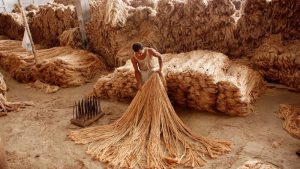Under the rules of the World Trade Organisation (WTO), virtually all countries of the world must provide intellectual property rights on plant varieties. They can do this either through patents or through an alternative legal system. One alternative system is UPOV (Union for the Protection of New Plant Varieties). Under UPOV, plant breeders get a 20-25 year monopoly over seeds that are new, distinct, uniform and stable. No one can produce, reproduce, sell or exchange seeds of these varieties without the breeder’s permission. For the seed industry, this kind of control is paramount in order for companies to recoup breeding investments, which are often designed to lock farmers into using their agrochemicals as well.
Asia, home to 60% of the world’s people and 74% of its farmers, is the target of an intensifying campaign to get Asian countries to join UPOV or to at least follow its rules known as UPOV 91 (when they were last revised) under the auspices of various trade negotiations. This is happening both in bilateral trade talks, like EU-India, or under regional talks like those around the Trans-Pacific Partnership (TPP) or the Regional Comprehensive Economic Partnership (RCEP).
Up to 80% of all seeds used in Asia today still come from farmers who save seeds from previous harvests. With seed saving and informal seed distribution still, a common practice among many communities in Asia, joining UPOV 1991 would be catastrophic as it would lead to the criminalisation of farmers for simply doing their daily practices: saving, breeding and distributing seeds.
https://www.grain.org/en/article/6372-asia-under-threat-of-upov-91
– Third World Network




